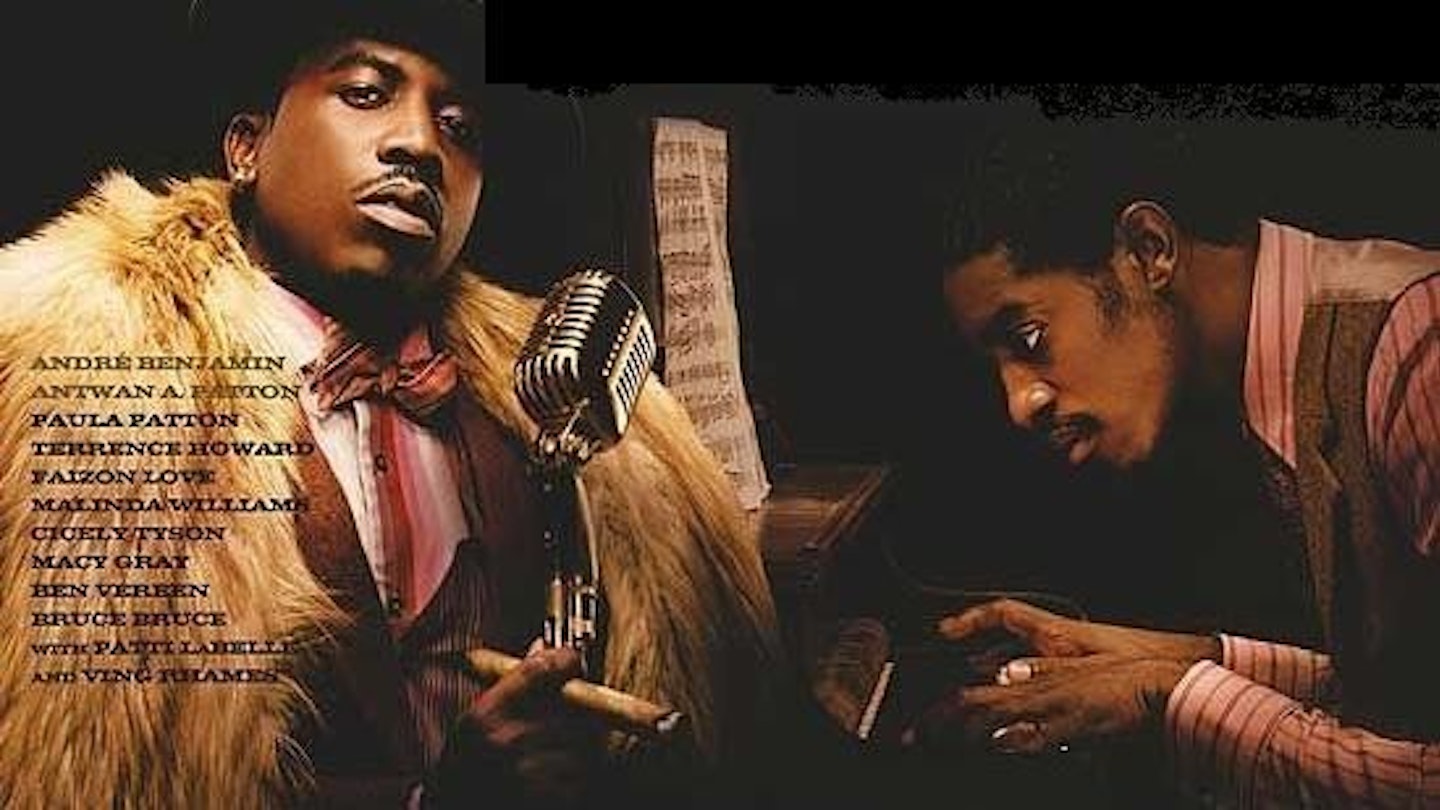Despite being headlined by two of hip-hop’s biggest stars, you will find no discussion of bitches or bling in Idlewild, no fading action icons; nor much reference to The Wrong Side Of The Tracks. The closest you’ll get to rap star cliché is a selection of minimally dressed women and a new track over the end credits. That’s not to say that everything in the movie debut of OutKast — as a twosome at least — is successful, but you have to respect it for striving to do something outside the norm.
The project grew out of two music videos for the pair’s previous album, which proves to be an occasional strength in terms of presentation, but often a weakness in terms of story. The plot would comfortably fill the three and a half minutes of your average pop promo, making it far too slight for the two-hour running time.
There is also little crossover between Rooster’s (Antwan Patton) story of trying to regain his club from a gangster (Terrence Howard) and Percival’s (André Benjamin) romance with a night-club chanteuse with a secret (Paula Patton; no relation), giving the movie a disjointed quality. So rather than let the mind wander from the inconsequential story, the film grabs your attention with some terrific visual trickery.
Bryan Barber, making his feature debut, isn’t a great director of dialogue, but his experience directing videos for the pair means he knows how to make a musical or action sequence kick. Any time his leads open their mouths to sing or a recognisable hit starts up, the film becomes exponentially more enjoyable. With a solid beat to work to, his film has rhythm and energy — a car chase/club sequence crossover set to the strains of Church is joyous. The non-musical sequences are more like wavering freeform jazz: sometimes they reverberate with something approaching brilliance, but can be just jumbled elements, making no sense, with seemingly no end.
Patton and Benjamin (foregoing their usual monikers Big Boi and André 3000) give respectable performances with the underwritten material. Patton particularly, the less cinematically experienced of the pair, shows an easy way with comedy, especially of the physical kind. But this is really not a film to watch for great acting performances: it’s best enjoyed by fans as an expensive experiment in how far you can push the music video medium: this far, but no further.
